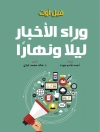While conventional wisdom has it that humor embodies a spirit of renewal and humility, a dispirited form of comedy thrives in a media-saturated and politically charged environment.
When Comedy Goes Wrong examines how, beginning in the late-twentieth and carrying into the early twenty-first century, a certain comic dispirit found various platforms for disheartening cultural politics. From the calculated follies on talk radio programs like the Rush Limbaugh Show through the charades of ‘cancel culture’ and ultimately to so-called Alt-Right comedy, the transgressions, improprieties, and ego trips endemic to a newfangled comic freedom produced entirely unfunny ways of being. To understand these unfunny ways, Christopher J. Gilbert challenges the prevailing belief in humor’s goodness, analyzing radio personalities, meme culture, films, civil unrest, and even the language of ordinary individuals and everyday speech, all to demonstrate what happens when humor becomes humorless. As such, Gilbert imagines a nuanced sense of humor for a tumultuous world.
Ultimately, When Comedy Goes Wrong transcends partisanship to explore the uglier parts of American culture, imagining the stakes of doing comedy—and being comical—as a means of survival.
Содержание
Acknowledgments
Introduction: High Times for a Comic Dispirit
1. Comedy at Cross-Purposes: Paul Shanklin and the Show of Conservative Force
2. Poe’s Law and the Moot Points of Million Dollar Extreme
3. Killing It: Joker and Comedy beyond Recognition
4. Fools on the Hill: Trumpsters and the Capitol Insurrection
5. Comedy Is Dead, and Living as Rage in the Comic Language of the Alt-Right Machine
Conclusion: Comedy on the Low Road
Epilogue: There Is No Denying the Comedy of Earthly Survival
Bibliography
Index
Об авторе
Christopher J. Gilbert is Associate Professor of English at Assumption University. He is author of Caricature and National Character: The United States at War. He is also author of numerous articles published in a wide variety of academic journals and several chapters in edited volumes, and coeditor (with John Louis Lucaites) of Pleasure and Pain in US Public Culture. When he is not teaching and writing, Gilbert is a farmsteader and an avid cyclist.












